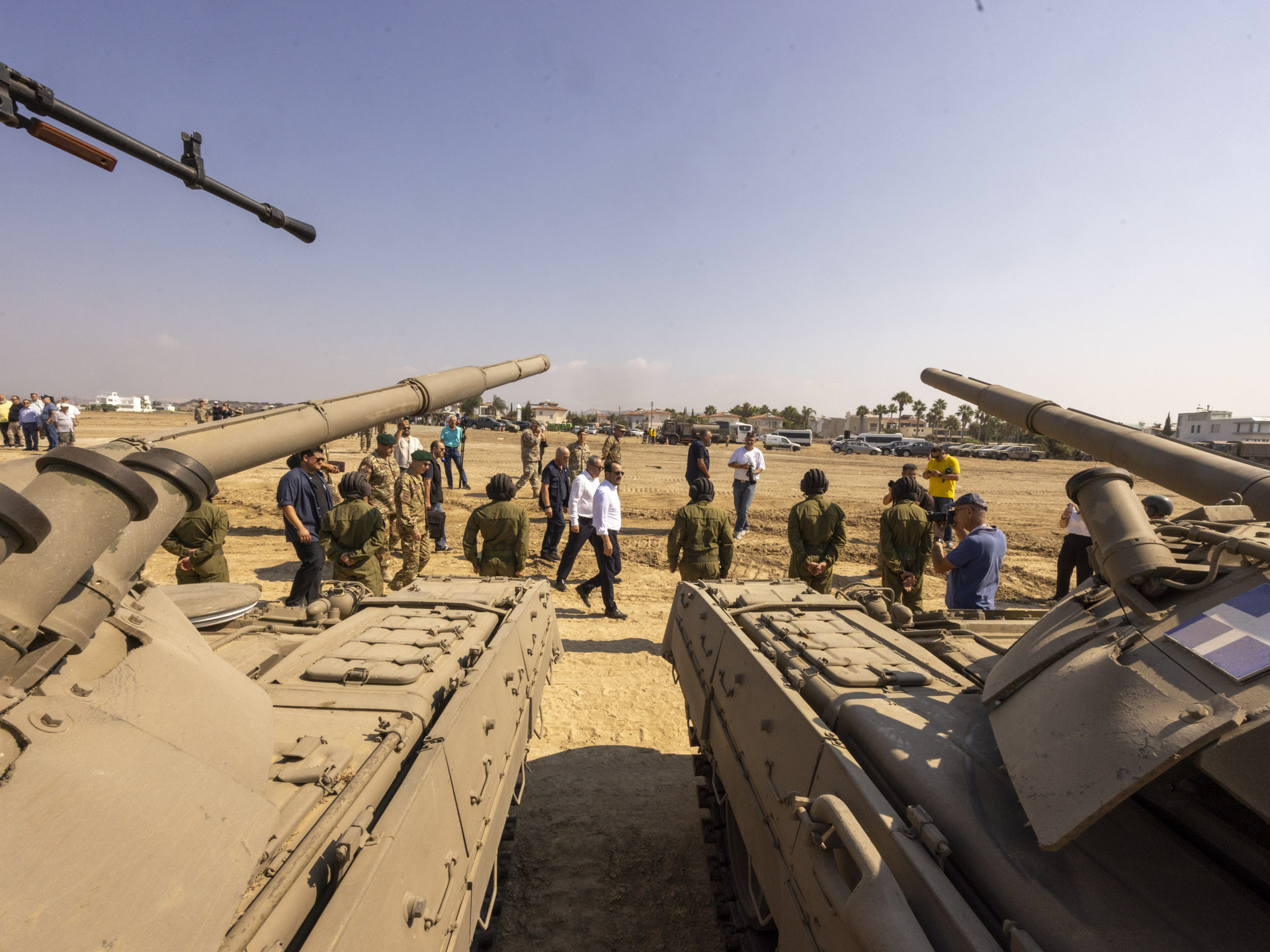The national guard celebrated its 60th birthday on Thursday by holding manoeuvres in Zygi in the presence of President Nikos Christodoulides and the Minister of Defence Vasilis Palmas, both of whom lavished praise on the army’s battle-readiness and the soldiers’ morale and high level of training.
“As long as we have the continuing, illegal Turkish occupation, the strengthening of the power of deterrence of the Cyprus Republic constitutes not just a priority for us, an obligation to the Cypriot people,” said the president. More worryingly, he said would keep his election promise about expenditure on military equipment reaching 2 per cent of GDP.
Had he done the arithmetic of his promise? Two per cent of the 2023 GDP, which was in the region of €29.65 billion would come to about €593 million. In this year’s budget, expenditure on defence equipment is €162m – the lowest of the last few years – which means it would have to be increased by more than 3.5 times to reach, approximately, the promised level of spending. Where will the government find all this money? To put things in context, in 2023 defence equipment expenditure was €173m which was 0.6 per cent of GDP.
Until now, most of the defence spending was used for payment of salaries, supplies and operational costs. The total defence ministry budget for this year was €553m of which €185m went to the Cyprus Army (salaries of officers) and €193m to the national guard.
The official line, supported by all the political parties, is that this is money well-spent as it provides the country with security and acts as a deterrent against attack from the Turkish army. Anyone with the most basic understanding of defence will know that this is more a delusion than a rational appraisal of the national guard’s capabilities, which are extremely limited, regardless of what the politicians tell us.
In the end, we have turned defence into another vehicle for public employees, creating a national guard with an excessive number of well-paid officers – too many of them at the highest ranks – and a growing number of privates on contracts. It is a fact that most of the defence ministry budget goes on salaries.
We cannot scrap the national guard altogether as long as there is a dividing line on the other side of which is the Turkish army. An army is needed to keep watch of this dividing line and to step up if there are incidents along it. But no matter what the politicians say, this is not an army that can repel a Turkish offensive for longer than a couple of days. What happens after that?
Increasing spending on military equipment to 2 per cent of GDP will make no difference to the existing imbalance of power, but it would make a big hole in public finances that will not benefit the country in any way.







Click here to change your cookie preferences